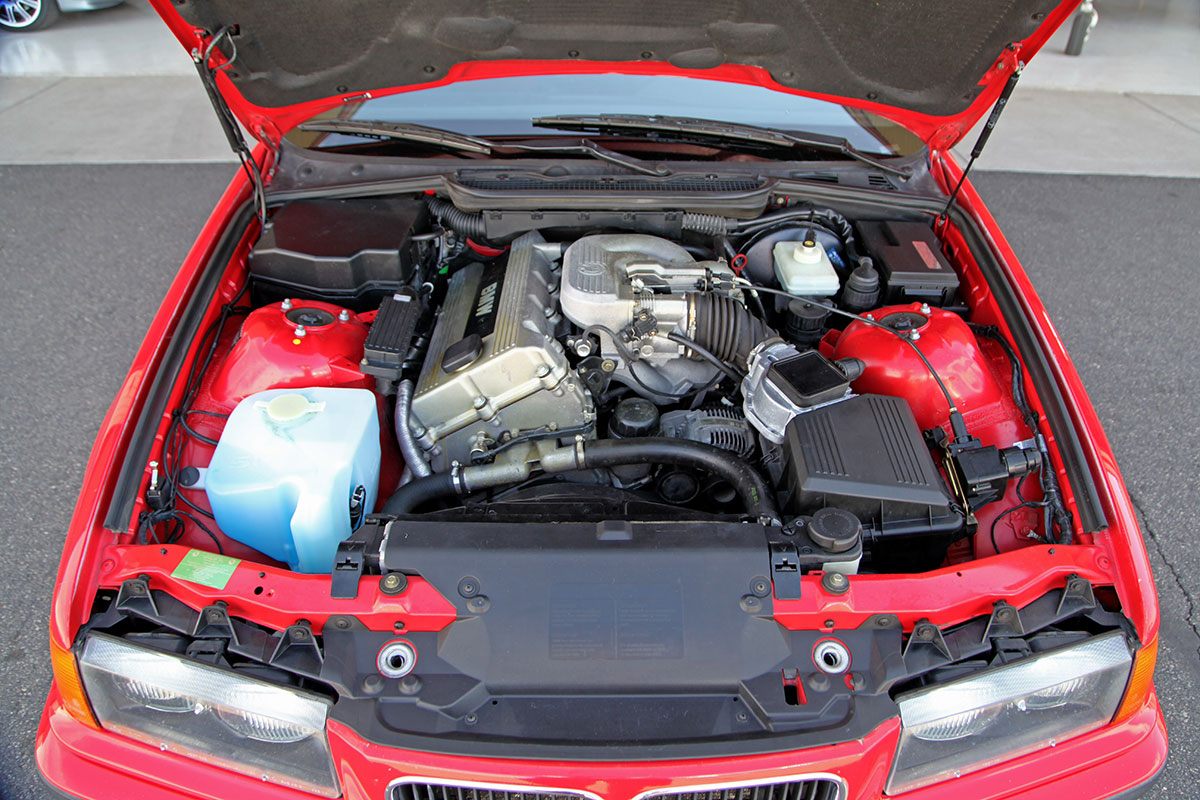BMW 318ti: A Comprehensive Guide to This Compact Giant
BMW 318ti: A Comprehensive Guide to This Compact Giant
Blog Article
Vital Factors To Consider for Picking the most effective Engine for Your Requirements
In the world of selecting the ideal engine to meet your demands, a number of vital aspects demand thorough consideration to make sure ideal efficiency and effectiveness. From the nuanced balance in between power and performance to the often-overlooked facets of maintenance and service needs, each element plays a pivotal role in identifying the most suitable engine for your particular demands.
Power and Efficiency
When assessing engines for ideal efficiency, it is crucial to prioritize both power output and effectiveness. Power output gauges the capability of an engine to produce power, which directly affects its performance. A high power output is necessary for requiring tasks such as sturdy applications or high-speed requirements. It makes certain that the engine can handle the workload effectively and efficiently. Power alone is not sufficient; effectiveness plays a significant duty in figuring out the general efficiency of an engine. Efficiency describes exactly how well the engine transforms fuel right into usable energy. A more efficient engine will supply much better gas mileage, lower exhausts, and lowered operating expense. Striking the ideal equilibrium in between power output and effectiveness is essential to choosing an engine that fulfills your particular requirements. It is necessary to think about factors such as the intended use of the engine, environmental effect, and long-term cost implications when making this choice. By very carefully assessing both power and effectiveness, you can pick an engine that provides optimum efficiency and fulfills your requirements efficiently.
Fuel Effectiveness and Economic Climate
In the realm of engine choice, the factor to consider of gas performance and economic climate holds paramount importance. Gas effectiveness refers to the engine's capability to transform gas right into energy with very little waste, straight affecting operating prices and ecological sustainability. bmw 318ti. When selecting an engine, examining its gas economic situation is important to identify long-term cost savings and ecological effect. Engines with higher gas effectiveness not only minimize gas expenditures however additionally lower carbon emissions, adding to a greener operation.

Compatibility and Application
Thinking about the fuel efficiency and economic climate of an engine, the following critical aspect to address is its compatibility and application within specific functional contexts. Compatibility describes just how well the engine integrates with the overall system or devices it powers. It includes factors such as physical measurements, placing alternatives, electrical user interfaces, and control systems. Making sure compatibility is necessary to protect against problems such as getting too hot, vibrations, or power discrepancies (bmw 318ti).
Various engines are developed for certain objectives, whether it be commercial equipment, aquatic vessels, cars, or power generators. Recognizing the intended application permits for the selection of an engine that can provide the necessary power output, torque, and operational qualities.
Maintenance and Solution Requirements
Upkeep and solution needs play an essential role in making sure the durability and ideal efficiency of an engine. Normal maintenance is important to protect against breakdowns, prolong the life-span of the engine, and maintain its performance. When choosing an engine, it is very important to think about the maker's advised maintenance timetable and the availability of solution centers or certified professionals.
Factors such as the regularity of oil changes, filter substitutes, and total inspections can substantially influence the engine's performance. Some engines might require more regular maintenance based click now on their style and use, while others might have longer periods in between upkeep checks. It is vital to abide by these solution requirements to stay clear of expensive repair work and unexpected downtime.

Price and Budget Considerations
When selecting an engine for a specific application,Budget plan restrictions frequently play a substantial function in the decision-making process. When considering the cost and budget plan implications of picking an engine, it is vital to assess not just the preliminary acquisition rate yet additionally the long-term expenditures related to maintenance, gas intake, and potential upgrades or fixings. It is critical to strike a balance in between the in advance price of the engine and its general lifecycle prices to guarantee that the picked engine continues to be financially lasting throughout its functional life-span.
Factors such as gas dependability, performance, and resilience can directly impact the complete cost of possession of an engine. While an extra expensive engine may have higher ahead of time expenses, it can potentially cause reduced maintenance and gas costs over time, therefore offering better value in the future. Additionally, considering the availability and cost of extra parts, as well as the ease of upkeep and service, can assist protect against unforeseen financial pressure in the future. By carefully examining these cost and budget factors to consider, more you can make an enlightened choice you can look here that lines up with your financial restrictions and functional demands.
Conclusion

Fuel effectiveness refers to the engine's ability to transform gas right into power with marginal waste, directly affecting operating costs and ecological sustainability.Variables affecting gas effectiveness consist of engine style, combustion efficiency, and general performance optimization. Additionally, choosing the suitable gas kind and quality as suggested by the engine producer can better improve performance and extend engine life-span.
Engines with good serviceability features and readily offered components can decrease maintenance prices and minimize the time the engine is out of operation - bmw 318ti. It is vital to strike an equilibrium in between the in advance expense of the engine and its general lifecycle costs to guarantee that the selected engine remains economically lasting throughout its functional life-span
Report this page